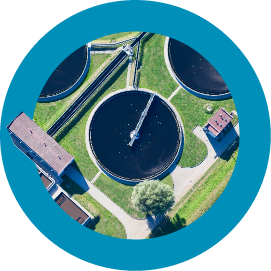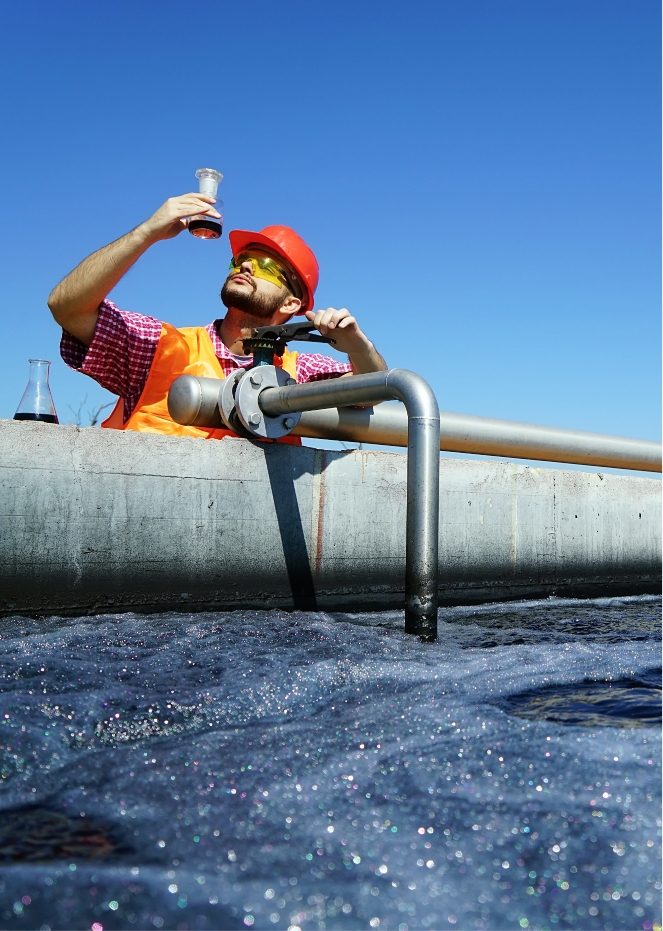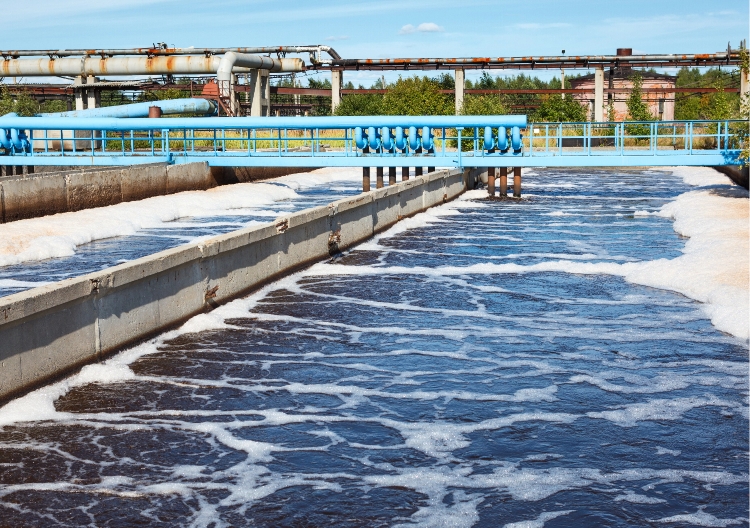
Biological Treatment
Biological wastewater treatment is often used as a secondary step to remove remaining bio-solids or organic matter. Biological treatments rely on bacteria, nematodes, and other microorganisms to degrade organic waste using natural respiration processes. IDE offers two distinct bio-treatment solutions to various industries.


MBR (Membrane Bioreactor)
A membrane bioreactor (MBR) is an emerging type of wastewater treatment system that combines membrane based processes like ultrafiltration (UF) or microfiltration (MF) with a suspended growth bioreactor. The credibility of the membrane separation technique provides high-quality effluent, minimizes footprint, reduces civil works, reduces treatment plant downtime, and thereby reduces operating costs.

MBBR (Moving Bed Biofilm Reactor)
A Moving Bed Biofilm Reactor (MBBR) is a wastewater treatment process in which all biological activity occurs in the biomass fixed to designated carriers. MBBR eliminates the need for a secondary clarifier, since no sludge recycling is required. Using this MBBR process increases the removal rate and reduces footprint. The fixed biomass can better handle wastewater variation from high-load industries or municipal sources.
Related Solutions
All solutions

Contact an Expert






